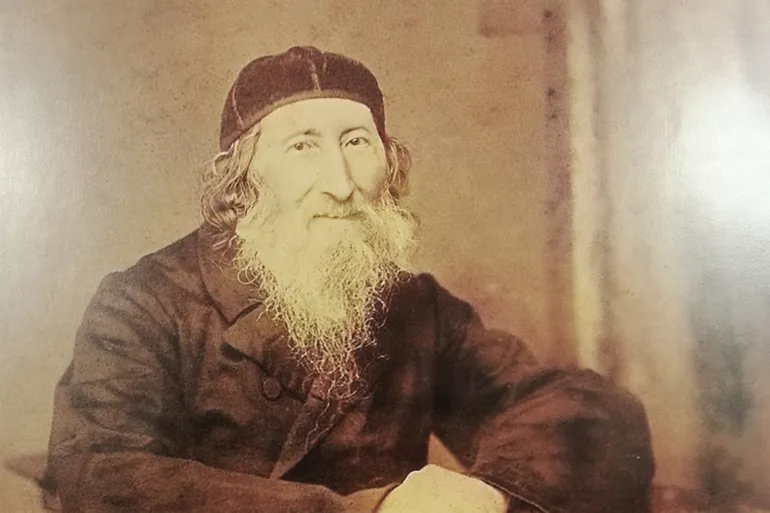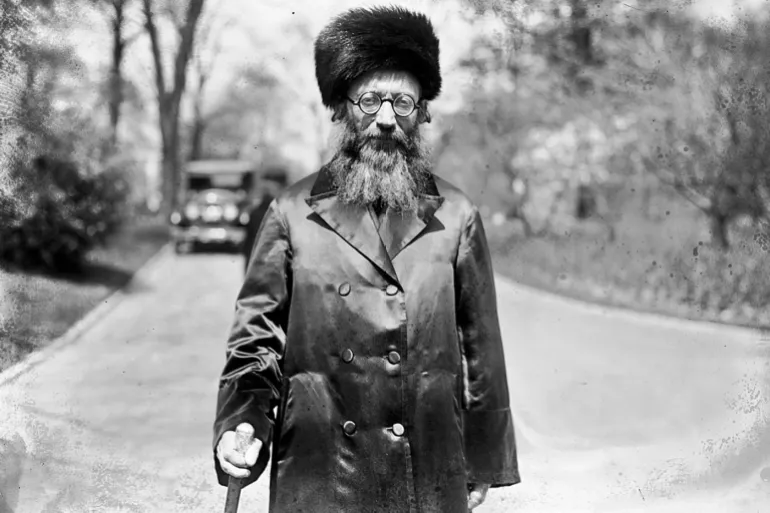In March 2024, the head of the “Shirat Moshe” religious school in Jaffa, Rabbi Eliyahu Mali, publicly called for the killing of all Gaza residents—men, women, and children—citing so-called “Jewish law” to justify his position. He described the war on Gaza as a “religious war” and demanded that no one be left alive in the besieged enclave.
This shocking decree, which Rabbi Mali claimed was rooted in Jewish jurisprudence, is only one among many issued by Israel’s rabbinate establishment—a religious institution with growing influence over the military, political, and legal life of the Zionist state. For over a century, Israel’s religious Zionist rabbis have quietly evolved into a powerful, ultra-nationalist force shaping national policy from behind the scenes.
So how did these religious authorities gain such power? And how have they manipulated secular Zionism to fulfil their own apocalyptic visions?
Religious Zionism Exploiting Secular Zionism
In the late 19th century, amidst rising persecution of Jews across Europe, a group of influential rabbis and religious thinkers emerged to promote a messianic vision: reclaiming Palestine as the “Promised Land.”

Among the most prominent was Rabbi Tzvi Hirsch Kalischer (1795–1874), a German Orthodox rabbi who predated even Theodor Herzl, founder of political Zionism. Kalischer framed Jewish immigration to Palestine not as a political strategy, but as a divine obligation—a sacred mission to fulfil God’s covenant.
Kalischer’s vision married religious messianism with pragmatic political activism. He and other rabbis, including Moshe Hess and thinkers from the “Lovers of Zion” movement (established in 1881), promoted militarised Jewish settlement in Palestine as a step toward messianic redemption. They rejected the idea of passively waiting for divine intervention and instead called for the creation of a Jewish state by force and strategy.
By 1898, this ideology had crystallised into a political movement when 14 rabbis joined a Zionist conference in Russia, forming the Mizrachi bloc, the first political party representing Religious Zionism. The movement called for active sovereignty in the Holy Land—breaking from Orthodox traditions that required the Messiah’s arrival before statehood.
Religious Zionism thus positioned itself as a middle path: balancing Torah-based theology with the colonial objectives of secular Zionists, using religious language to energise nationalist projects.
From Theology to Military Strategy
Leading this religious-nationalist shift was Rabbi Abraham Isaac Kook (1865–1935), often referred to as the spiritual father of Religious Zionism. He taught that secular Zionists, even unknowingly, were “divine instruments” fulfilling prophecy by colonising Palestine.
After Israel’s establishment in 1948, the Religious Zionist movement strategically entrenched itself in Israeli state structures:
-
- The Chief Rabbinate
-
- The Ministry of Religious Affairs
-
- The IDF (Israel Defense Forces)—where every unit was assigned a dedicated rabbi
Although initially opposed to military service on religious grounds, Religious Zionists later issued new rulings—notably by Rabbi Tzvi Yehuda Kook (son of Abraham Kook)—declaring military service a Torah obligation. This allowed religious study to be merged with military training in special yeshiva-army schools.
The 1967 war was a major turning point. Following the occupation of Jerusalem, Hebron, the West Bank, Sinai, and the Golan Heights, Rabbi Tzvi Kook declared the conquest a divine miracle, intensifying efforts to settle occupied Palestinian lands in fulfilment of religious prophecy.
The Rise of Religious Extremism in Settler Politics
After Israel’s 1973 military failures, Religious Zionist influence surged with the creation of Gush Emunim in 1974. This group, which aimed at the “redemption of Israel and the world,” became the backbone of the settler movement in the West Bank and Gaza. Backed by political figures like Ariel Sharon, and supported by the Likud government after 1977, Gush Emunim established illegal settlements near Palestinian towns.
Though Gush Emunim declined in the 1980s, more radical offshoots like Elad and Lehava emerged, continuing the settler-colonial project with messianic-nationalist ideology. These groups received legal, financial, and military support from the Israeli government, enabling them to expand Jewish-only housing across East Jerusalem and the West Bank.

Key institutions such as the IDF Military Rabbinate, founded by Rabbi Shlomo Goren in 1948, actively justified military violence against Palestinians with religious decrees. Meanwhile, the influential Mercaz HaRav Yeshiva, founded by Rabbi Kook in 1924, became a hub for ideological settlers and post-1967 colonisation plans.
Rabbis as Political Kingmakers
British journalist Jonathan Cook observed that early Zionist leader David Ben-Gurion granted the Orthodox rabbinate massive authority over Israel’s personal status laws and public institutions. This power has only grown.
Today, yeshivas (religious schools) shape political and military leadership. Many of their graduates enter elite units like Sayeret Matkal, Egoz, and Shabak (Israel’s internal security agency), where Religious Zionists now comprise 60% of Shabak officers and 40% of combat commanders.

This dominance has led to a dangerous reality:
-
- A Bar-Ilan University study revealed that 90% of religious soldiers would follow rabbinic orders over those of the Israeli government if the two conflicted.
Religious Law Over Civil Law
The Chief Rabbinate, founded in 1921 under British rule, continues to dominate Jewish identity laws in Israel. Converts to Judaism must be approved by the Orthodox Rabbinate—civil conversions are not recognised. Religious law also governs marriage, divorce, and burial, entrenching the rabbis’ influence in the legal system.
This religious grip extends to Israeli electoral politics. Ultra-Orthodox parties like Shas and United Torah Judaism have toppled governments by rabbinic decree. In 2014, Rabbi Aharon Yehuda Steinman ordered a boycott of Netanyahu’s coalition—leading to its collapse.
The rabbis’ demands often include:
-
- Funding for yeshivas
-
- Control over education and media policy
-
- Influence on judicial appointments
Rabbinic Decrees that Justify Genocide
The influence of Israeli rabbis goes beyond policy—it touches the core of violence.
In 2015, an investigation by Haaretz exposed that American Jewish organisations were funding extremist yeshivas in Israel through tax-exempt donations. These institutions promoted the destruction of Al-Aqsa Mosque and the killing of Arabs, under the guise of religious rulings.
One example is Rabbi Ginzburg’s yeshiva, known for advocating religiously sanctioned violence. Books like The King’s Torah (2009), written by Rabbis Yitzhak Shapira and Yosef Elitzur, openly justify killing non-Jews—including children—if they pose a hypothetical threat to Jews. These rulings do not require state approval and are shielded under Israeli law as protected religious opinion.
These ideologies feed extremist groups like:
-
- Hilltop Youth: known for torching Palestinian homes and attacking villagers
-
- Lehava and Elad: pushing forced Judaization in Jerusalem and Hebron
Since 2003, the Sanhedrin movement, backed by key rabbis, issued rulings allowing Jewish prayer and rituals at Al-Aqsa Mosque, encouraging Talmudic ceremonies in its courtyards. By 2006, they had succeeded in making these practices mainstream among Temple Mount activists.
Rabbis Behind the War on Gaza
Since the start of Israel’s war on Gaza in October 2023, extremist rabbis have once again issued bloodthirsty fatwas:
-
- Rabbi Eliyahu Mali called for the complete extermination of Gaza’s population
-
- Rabbi Shmuel Eliyahu declared that killing women and children is permissible, citing “Jewish law and ethics”
These are not fringe figures—they run major religious institutions with state support and generous salaries, and their words influence military policy and public discourse.
As noted by researcher Maha Shahwan in her study “Rabbis: Israel’s Kingmakers”, Religious Zionism has evolved from a theological movement into a dominant political and military force, controlling the narrative across courts, parliaments, newsrooms, and battlefields.
Sunna Files Free Newsletter - اشترك في جريدتنا المجانية
Stay updated with our latest reports, news, designs, and more by subscribing to our newsletter! Delivered straight to your inbox twice a month, our newsletter keeps you in the loop with the most important updates from our website












